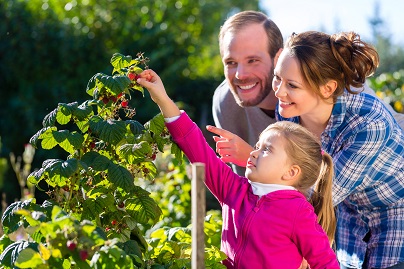A global network for food safety

Related topics
Agriculture & Forestry Food & Healthy Diet Innovation Societal Challenges Food security France Netherlands Poland Portugal United Kingdom Food security, sustainable agriculture and forestry, maritime and martime inland water research and bio-economy China Russian Federation Brazildate: 04/04/2015
Project: Towards sustainable global food safety c...
acronym: COLLAB4SAFETY
See also: CORDIS
Ensuring the safety of the EU’s food supply is in everyone’s interest – from farmers and manufacturers to policymakers and consumers. Strong rules and manufacturing standards serve to protect health, deliver quality products and boost the industry’s competitiveness, in Europe and elsewhere.
These rules and standards need to be kept up to date with the results of cutting edge research being done in Europe and across the world. Not doing so puts people’s health at risk and could erode Europe’s reputation for providing safe food.
To help, the EU-funded project Collab4Safety is conducting research and developing online networks to foster better global collaboration on food safety among specialists, industry and policymakers.
“Broader and more internationally inclusive cooperation on food safety will lead to more efficient use of research funds, the sharing of best practices, and durable partnerships with the EU’s major food trading partners,” says project coordinator Hans Marvin of RIKILT-DLO (Institute of Food Safety), part of Wageningen University and Research Centre in the Netherlands.
Food safety network
As part of this effort, Collab4Safety has established an online network of food safety experts and companies around the world. The network, or database, also supports partnerships among participants and allows them to share best practices on food safety.
By the start of 2015, about 1 600 food experts from over 120 countries were registered in the network. These experts in turn provide companies and policymakers with wider access to existing specialist networks in their own countries and regions, says Marvin.
In parallel, Collab4Safety is developing a separate online portal to provide scientists and policymakers with up-to-date information on the food safety rules of individual countries, along with available research and training programmes.
“Access to the huge amount of data generated within Europe and by research programmes elsewhere in the world would help policymakers and industry deal successfully with the challenges associated with food safety,” notes Marvin.
The project will also report on the current state of international research, innovation, training and policies on food safety. Based on consultations with those involved in food safety, it will make recommendations to address existing gaps in policymaking and to encourage better global cooperation on research.
Collab4Safety’s team will present this ongoing research as part of the EU’s scientific programme at its Pavilion during EXPO 2015 in Milan, Italy. Debate on the research there, as well as consultations with Members of the European Parliament and regulators, will feed into the project’s policy recommendations, says Marvin.
Sustainable business model
Collab4Safety will also develop a business plan on how to sustain and fund the specialist network and information portal after the project ends in July 2016. Based on his previous experience, including that as coordinator of the EU-funded SELAMAT project, Marvin is confident that both resources will be sustainable and continue operating after this date.
SELAMAT established a network to link food safety specialists in Europe with their counterparts in Asia. The project developed a sustainable network organisation that is based on membership fees and sponsorships. It is now 10 years old and participants exchange information on food safety, and initiate joint projects and training courses.
Overall, Collab4Safety’s work will increase overall confidence in EU food safety policy, including that of important EU trading partners, and help align standards between Europe and other countries, Marvin concludes.
